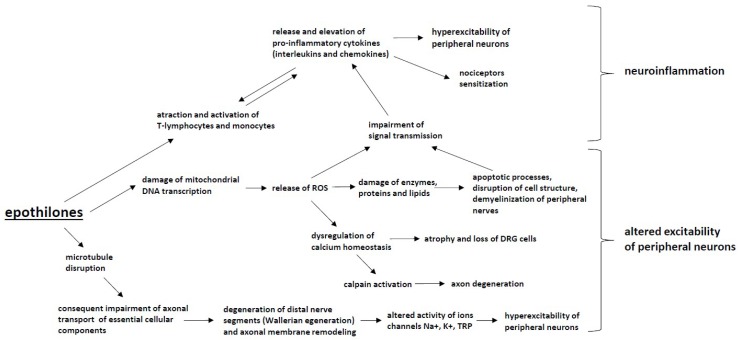Figure 4.
The mechanisms of CIPN induced by epothilones: Epothilones cause microtubule disruption, which impairs axonal transport and leads to Wallerian degeneration, the altered activity of ion channels and the hyperexcitability of peripheral neurons. Furthermore, the damage to mitochondria by epothilones leads to an increased production of reactive oxygen species (ROS), resulting in enzyme, protein and lipid damage within neurons as well as apoptotic changes to peripheral nerve. These processes lead to altered excitability of peripheral neurons. ROS release and the attraction and activation of T-lymphocytes and monocytes also induces the release and elevation of pro-inflammatory cytokines (interleukins and chemokines), the activation of immune cells and the development of neuroinflammation.

